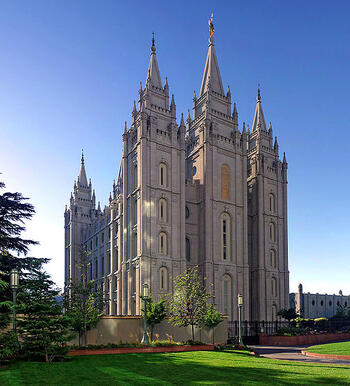
With Congress on what appears to be a permanent hold, the search for a workable political model now shifts increasingly to states and localities. Today America’s divergent geographies resemble separate planets, with policy agendas from immigration and climate change that vary wildly from place to place.
The greatest divide lies between the deep blue states, notably California, and progressive America’s network of large urban centers and the generally less dense, more suburban-dominated red states. Their policy prescriptions may vary, but, if allowed to continue, the differing jurisdictions could end up serving as what Supreme Court Justice Louis Brandeis called “laboratories of democracy.”
So, the critical question remains what policies work best. The answers may not be as simple as ideologues on the left and right might claim, but instead suggest, as President Bill Clinton once did, that our stunning diversity cannot easily follow a single political script.
California and the blue state model
Democrats may be at a historic low in terms of control of states and local jurisdictions, but they boast almost total domination in many of the richest, most influential and powerful locales. New York, California, Connecticut, Illinois and New Jersey are all tilting left with policies driven by powerful public employees, greens, urban real estate speculators as well as ethnic and gender activists.
To be sure, kowtowing to these interests has landed these states among the worst fiscal situations in the nation. Yet some blue regions also have grown economically well above the national average since 2010, largely driven by asset inflation, particularly real estate and stocks, and technology. California’s robust growth, although now slowing, and its world-dominating tech sector has made it a creditable role model for similarly minded states.
But what has been good in the aggregate has not worked so well for most Californians. Despite all the constant complaining about inequality and racial injustice, California, notes progressive economist James Galbraith, has also become among the most economically unequal parts of the country, topped only by Connecticut, New York and New Jersey. Particularly damaged have been the prospects for the young and minorities, particularly in terms of achieving homeownership.
Read the entire piece at The Orange County Register.
Joel Kotkin is executive editor of NewGeography.com. He is the Roger Hobbs Distinguished Fellow in Urban Studies at Chapman University and executive director of the Houston-based Center for Opportunity Urbanism. His newest book is The Human City: Urbanism for the rest of us. He is also author of The New Class Conflict, The City: A Global History, and The Next Hundred Million: America in 2050. He lives in Orange County, CA.
Photo: Entheta (talk)Salt_Lake_Temple,_Utah_-_Sept_2004.jpg: Diliff (Salt_Lake_Temple,_Utah_-_Sept_2004.jpg) [CC BY 2.5, GFDL or CC-BY-SA-3.0], via Wikimedia Commons













Old-Time Religion
In the OCR article, Kotkin writes: Utah’s emphasis on both individual responsibility and community effort may represent the best hope for restoring the social sustainability of our society.
Perhaps he considers it not within his vocational horizon to do so, but I wish he had explored the religious element. It is no accident (or is it? that's the whole question, right?) that the unique dual emphasis of Utah is a product of the Mormon Church. I am not a religious person, but it would be both ignorant and stupid to deny the Christian provenance of Utah's success. Yet everywhere else in the US, the mere sight of a Christian symbol is enough to give all of the self-professed rational enlightened Blue people the vapors and for federal courts to declare the symbol's visibility itself unconstitutional. And just today I see where Kent State is "investigating" whether an evangelical telling another that "you need Jesus" is "hate speech."
If Kotkin isn't just rhetorizing, if he really believes there is a compelling ground for his statement above, then he ought to assess the chances of a Utah model in a country whose hostility to its very foundation is growing more vitrolic every day.